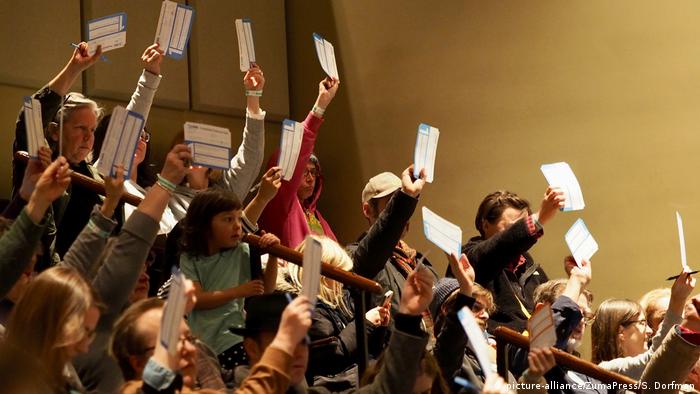On Trump’s Road to Reelection, the Problem Isn’t the Economy
(Taiwan) on 1 February 2020
by (link to original)
Let us first look at critical monetary policy. Many believe that during an election year, the Federal Reserve will probably not raise interest rates. While this is not set in stone, the outcome of a meeting on Jan. 29 by the Federal Open Market Committee indicated that currently, the Fed’s policies will remain moderate. Federal Reserve Chair Jerome Powell disclosed similar information in a statement after the meeting and during a press conference. First, the only change announced in the statement was that household spending had eased from strong to moderate. Discerning individuals can easily how profound this is.
Second, since last October, the Fed has been buying $60 billion worth of short-term Treasury debt every month. Its public reasoning is that it wants to increase bank deposit reserves and ease the pressure of short-term interest rate increases — not that it is returning to the practice of quantitative easing to lower long-term interest rates. However, to those in the market, that’s quantitative easing as long as the Fed buys Treasury bills. Once funding from the Fed enters the market, it can guide the market flow, but cannot determine the final outcome.
Next, the Fed once again raised the interest rate on excess reserves from 1.55% to 1.60%, indicating that it will resume purchasing debt. This, along with involvement in repurchase operations, has successfully pushed bank reserves back into the financial system, decreasing the risk that short-term interest rates will soar once again. The Fed will continue purchasing Treasury bills at least until the end of June, giving financial markets a sense of security.
Powell mentioned that the coronavirus outbreak may affect economic growth, and reiterated that the Fed is concerned that the U.S. inflation rate remains below the 2% target. Trends in interest rate futures also indicate that according to market predictions, there is a slight chance the Fed will decrease interest rates by one point within the year. Therefore, 2020 will be a “dull” year for the Fed, the most probable situation being that it will not change interest rates. Still, the chance it will decrease interest rates is greater than the chance it will increase rates, especially if the coronavirus outbreak spreads and broadly affects the global economy, in which case the Fed might enact further easing.
Next, let’s look at economic performance. Although executive confidence levels are at a 10-year low and investment is weak, the unemployment rate, which voters most care about, is at 3.5% — a 50-year low — and many working age adults have returned to the labor force. Most wages have increased by around 3%, inflation remains below 2% and real wages have maintained growth.
Since Trump came into office, economic performance has been barely passable. The main driving force has not been tax cuts and deregulation to stimulate corporate investment, but rather increased government spending. Congress has agreed that the amount of increased public spending by the Trump administration to stimulate economic growth is more than three times that of Barack Obama’s administration. In 2020, Trump is again preparing to throw money around, this time with the participation of the Democrats. This May, the federal government will undertake the once-in-a-decade population census. The census is estimated to employ 400,000 temporary workers, which will fire up the market. Thus, if the 2020 presidential election is based on bread-and-butter issues, it will favor Trump’s reelection.
Trump’s most controversial trade policy so far is the relaxing of policy agreements since the end of last year. The U.S. and China have already signed phase one of a trade agreement, and phase two trade talks will soon begin. The new U.S.-Mexico-Canada trade agreement was recently signed, and trade conflicts between the U.S. and E.U. appear to be easing. Although Trump’s trade policies have always been erratic, particularly during negotiations with China, he is, after all, a businessman. All of his policies and operations have been devised to get him reelected. Even though the U.S. economy is only maintaining trends in long-term growth, it remains a leader in the developed world. Rather than stirring up trouble, it is better to retain this position of leadership by practicing restraint.
According to the latest monthly poll by the Financial Times and the Peter G. Peterson Foundation, 51% of respondents believe Trump’s policies have “strongly” helped the economy. Moreover, since this poll began last October, approval ratings for the Trump administration’s economic performance have increased. Low interest rates, a better housing market and a strong stock market may have all been factors affecting voter optimism.
Trump’s relaxed monetary policies and a strong employment rate can, at a minimum, satisfy voters’ most basic demands. Consumer participation will sustain economic growth, and the trade war has temporarily ceased. Therefore, at least economic problems won’t slow Trump down on the road to reelection.


